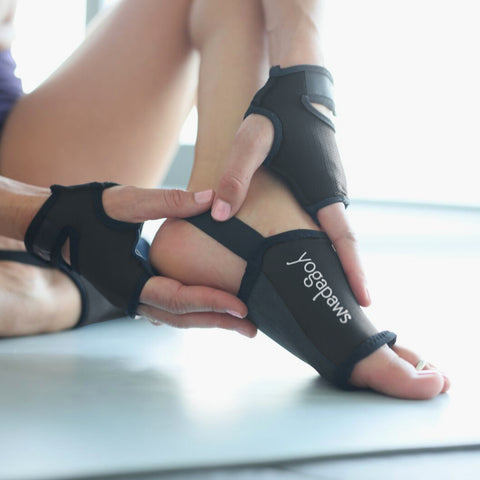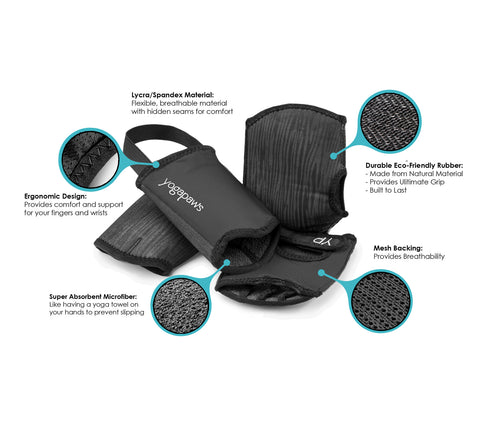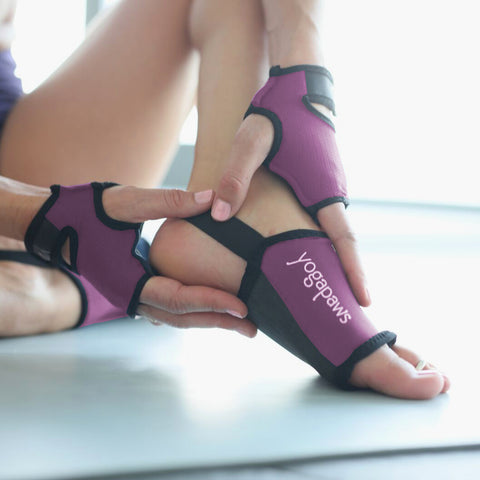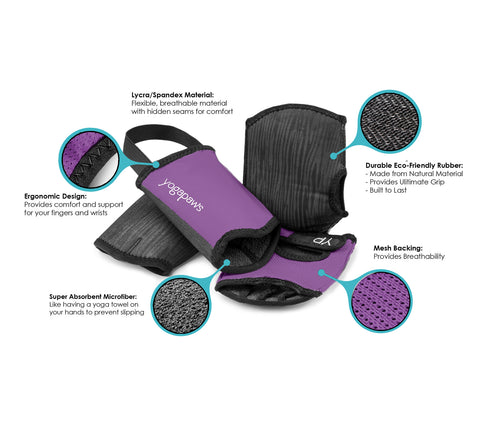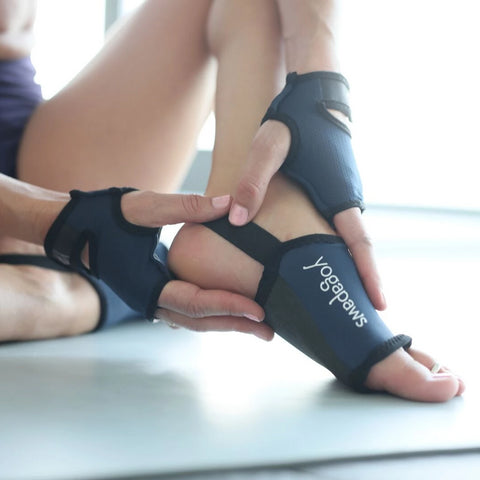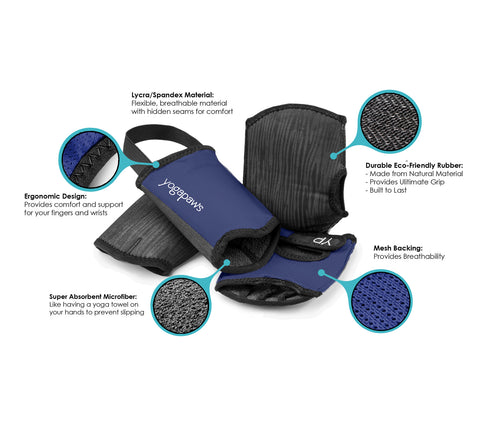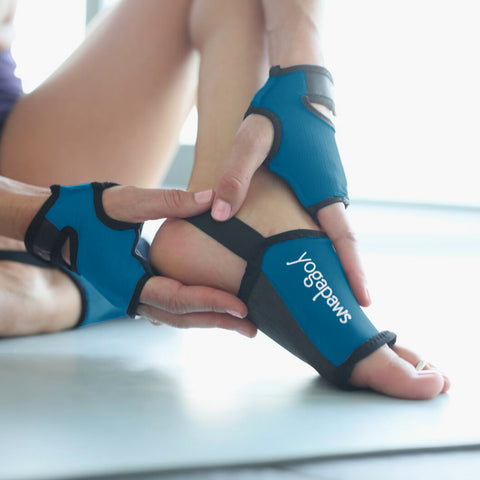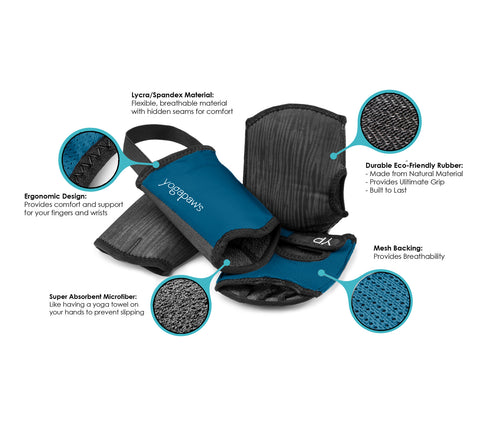Posted on January 22 2018
 Holidays are very much a celebration of the yogic concept of unity. These special occasions remind us to be grateful, loving and kind. They remind us how connected we are, and how good that feels—whether it’s the warmth of family gathering around a table with beautiful food or the quiet of a cease-fire on a battlefield.
Holidays are very much a celebration of the yogic concept of unity. These special occasions remind us to be grateful, loving and kind. They remind us how connected we are, and how good that feels—whether it’s the warmth of family gathering around a table with beautiful food or the quiet of a cease-fire on a battlefield.
But, before those beautiful moments filled with smiles and laughter, for a lot of people, there are weeks of stressing about everything from cleaning to cooking to shopping. You may know in your heart that friends and family wouldn’t love you any less if there was still some dust in the corner or the dessert wasn’t perfect, but it probably doesn’t stop you from trying to over-achieve. It would be great if there were a “stop” button for the holiday frenzy. In many ways, that’s just what yoga is.
Yogic breathwork and asanas help calm mind, body, and spirit. Recent studies suggest that yoga increases alpha waves that are associated with relaxation. It also reduces cortisol, the hormone released in response to stress. The best part is that you don’t have to wait to get to a class to bring the benefits of yoga into your lifestyle. You can begin your de-stressing program by committing to a few minutes of pranayama (Controlled breathing) before you get out of bed or a gentle pose in the evening before falling asleep. Creating calm starts at home. Here’s how:
Anywhere, Anytime Breath Work

|
Sama Vritti Pranayama (equal breath). Sit comfortably. Turn your focus inside and feel the rhythm of your breath. Inhale and exhale. Then, as you inhale, begin counting slowly. Continue to inhale until your lungs are full. Then, exhale to the same count. After five to 10 breaths this way, you may want to explore the feeling of making the exhale longer. Variation: Inhale and exhale. At the bottom of the exhale, hold your breath for one count. On the next breath, hold your breath for two counts at the bottom of the exhale. Add a count for each of three more breaths. |
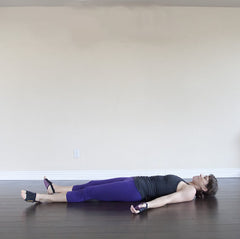 |
Dirga Pranayama (three-part breath). Although it would be ideal to lie on your back to realize the full benefits, you can also practice Dirga Pranayama in a comfortable seated position. Start by inhaling through your nose. Focus on the rhythm of your lower belly swelling on the inhale. Then exhale and feel the belly fall back toward the spine. On the next inhale, draw the breath up—starting at the pelvic floor and feeling the breath expand the lower abdomen, then the mid-body. Exhale and feel the front body move back toward the spine. On the third inhale, draw the breath from the pelvic floor to the mid-body and, finally, to the chest. As you exhale, let the chest fall back to the spine, then the mid-body and finally the lower abdomen. Concentrate on exhaling fully each time. Repeat for five breaths. |
 |
Nadi Sodhana (alternate nostril breath).
|
 |
Shitali Pranayama (Cooling breath). |
|
Asanas to Calm You |
|
|
|
Balasana (child’s pose). Kneel. Sit back on your heels. Inhale and stretch your arms toward the ceiling. Hinging at the hips, bow forward and bring your forehead to the floor. Stretch your arms out in front of you or sweep them back along your sides. Hold for 30 seconds to one minute. Bring your hands alongside your chest and gentle return to the seated position. |
 |
Savasana (corpse pose). Gently lower yourself to a seated position, then lie down on your back. Open your feet. Bring your arms along your sides and open your palms. Close your eyes. Focus on the rhythm of your breath for five or six rounds of inhales and exhales, then let go of any breath control and try to clear your mind. Variation: Bend the knees and bring the soles of the feet together to let the hips open and relax. Consider using an eye pillow for added relaxation. |
 |
Viparita Karani (legs up the wall pose). Stack two folded blankets or set a bolster a few inches from the wall. Sit on your support so that your left side is along the wall and your feet are extended straight out in front of you. Your body would look like the letter “l” along the wall. Shift your weight to the right, using your hands for support. Lower onto your right shoulder and then onto your back while bringing your legs straight up the wall. The backs of your thighs and calves should touch the wall. Toes point. Close your eyes. Focus on your breath. Stay in the pose as long as desired. Lower the legs, either sweeping them down and using the hands as supports to return to a seated position or flatten the feet, walk down the wall and gently push the body away from the wall and lie flat on the floor. |
 By choosing to practice even a few minutes of pranayama, meditation or asanas each day or “reaching for” these healing techniques when stress is becoming overwhelming, you can reset your thinking. The moment you wake up, you can take two or three deep breaths to transition from the “flight or fight” response to a blaring alarm to a mindset that is peaceful, calm and less reactive. Keep your YogaPaws near the TV and do a down dog during a commercial or while waiting for a video to load. Your bed, your kitchen, your living room will start to be associated with that calm, easy feeling—which you can take with you wherever you go.
By choosing to practice even a few minutes of pranayama, meditation or asanas each day or “reaching for” these healing techniques when stress is becoming overwhelming, you can reset your thinking. The moment you wake up, you can take two or three deep breaths to transition from the “flight or fight” response to a blaring alarm to a mindset that is peaceful, calm and less reactive. Keep your YogaPaws near the TV and do a down dog during a commercial or while waiting for a video to load. Your bed, your kitchen, your living room will start to be associated with that calm, easy feeling—which you can take with you wherever you go.


